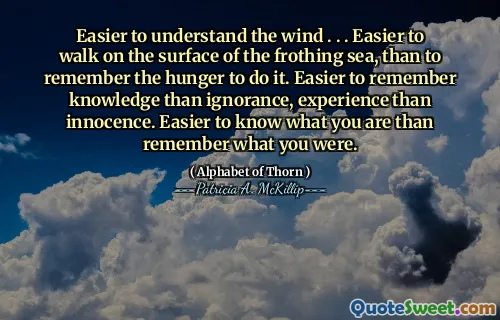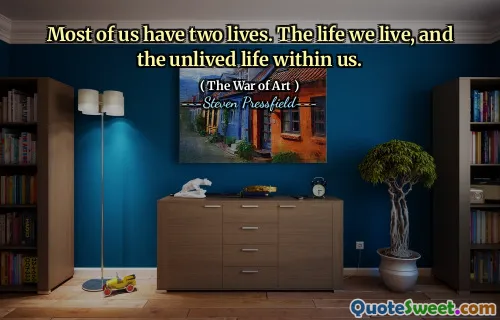
Tonight, It's not about You, Tonight It's about Me, It's about How Your absence troubles me, It's about How I hide all of this Hurt. Tonight it's not about Love, Tonight it's about separations, it's about How I write, to remember You, it's about How I remember You, through all of Myself.
The quote poignantly captures the complex emotions involved in separation and personal reflection. It shifts focus from the other person to the self, highlighting the introspective nature of grief and longing. The speaker confronts the pain brought by absence, exhibiting a raw vulnerability by admitting to the hurt that is concealed beneath the surface. This distress is not directed at love as an abstract concept but rather at the specific experience of separation.
Writing serves as a therapeutic act, a method to process and preserve memories of a cherished presence. It suggests that remembrance is an active, ongoing process, one that permeates the entirety of the speaker's being. This emphasis on individual internal struggle and memory underscores the enduring impact of relationships, even after physical or emotional distance.
The passage eloquently illustrates how moments of solitude can transform into arenas for self-exploration and emotional healing. By centering the narrative on 'me' rather than 'you,' the writer shifts the narrative from blame or resentment toward acceptance and introspection. This can resonate with many who have experienced similar feelings of separation, offering a sense of solidarity and understanding that mourning is deeply personal and multifaceted.
Moreover, the quote underscores the deep contradiction within the experience of loss: while the pain urges withdrawal and silence, the memory fuels expression and remembrance. It is this intricate balance between hurt and healing, absence and presence, that gives the passage its emotional depth and universality.










